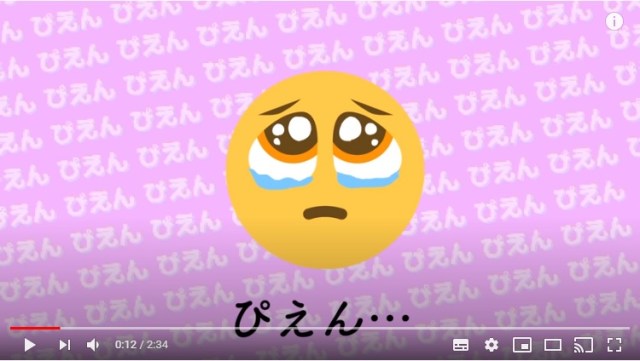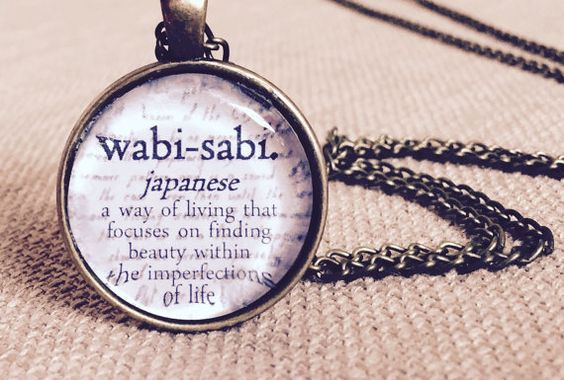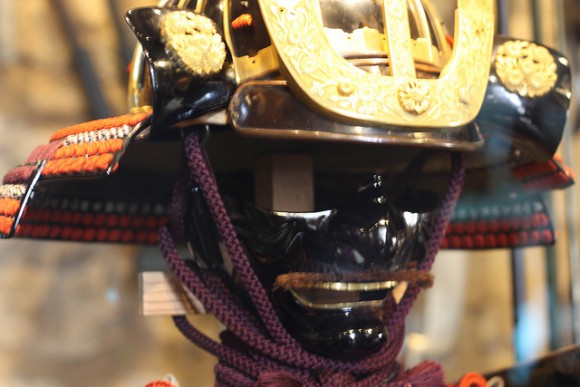words
When you start learning another language, like, say, Japanese, it’s common to come across certain words that sound like English words, but aren’t. For example, the Japanese word “hai” which means yes, sounds a lot like the greeting “hi” in English. Another example might be that “ohayou” meaning good morning sounds a lot like the US state of Ohio.
But, naturally, this goes both ways. There are also plenty of examples of Japanese speakers finding “Japanese” meaning in English words that a native English speaker would never think of…
In a survey carried out late last year, Japan’s Shonan Beauty Clinic asked 1,400 Japanese men and women what their favourite words were. The results were remarkably wholesome.
If you ever wondered how Japanese people truly think, or thought for a second that the stern expressions worn on busy commuter trains each morning were accurate representations of passengers’ inner feelings, you were way off the mark.





 Starbucks Japan releases first-ever Hinamatsuri Girls’ Day Frappuccino
Starbucks Japan releases first-ever Hinamatsuri Girls’ Day Frappuccino Drift ice in Japan is a disappearing winter miracle you need to see now
Drift ice in Japan is a disappearing winter miracle you need to see now Which convenience store onigiri rice balls are the most popular? Survey reveals surprising results
Which convenience store onigiri rice balls are the most popular? Survey reveals surprising results Tokyo street sweets: The must-snack treats of Nakano’s Refutei
Tokyo street sweets: The must-snack treats of Nakano’s Refutei Japan Extreme Budget Travel! A trip from Tokyo to Izumo for just 30,000 yen [Part 2]
Japan Extreme Budget Travel! A trip from Tokyo to Izumo for just 30,000 yen [Part 2] Skyscraper sized Pokémon cards to appear in Tokyo all year long in Tocho projection mapping event
Skyscraper sized Pokémon cards to appear in Tokyo all year long in Tocho projection mapping event Kyoto samurai house wants to share its history of seppuku, torture and gold coins with visitors
Kyoto samurai house wants to share its history of seppuku, torture and gold coins with visitors School textbook is withdrawn after “teacher” on the front is recognized as Japanese adult video star
School textbook is withdrawn after “teacher” on the front is recognized as Japanese adult video star Mars Japan releases first-ever Japanese-themed M&Ms with princess and samurai characters
Mars Japan releases first-ever Japanese-themed M&Ms with princess and samurai characters The 2013 Sapporo Snow Festival Photo Gallery 【You, Me, And A Tanuki】
The 2013 Sapporo Snow Festival Photo Gallery 【You, Me, And A Tanuki】 Highest Starbucks in Japan set to open this spring in the Tokyo sky
Highest Starbucks in Japan set to open this spring in the Tokyo sky The 10 most annoying things foreign tourists do on Japanese trains, according to locals
The 10 most annoying things foreign tourists do on Japanese trains, according to locals Tokyo Skytree turns pink for the cherry blossom season
Tokyo Skytree turns pink for the cherry blossom season Yakuzen ramen restaurant in Tokyo is very different to a yakuza ramen restaurant
Yakuzen ramen restaurant in Tokyo is very different to a yakuza ramen restaurant Shibuya Station’s Hachiko Gate and Yamanote Line stairway locations change next month
Shibuya Station’s Hachiko Gate and Yamanote Line stairway locations change next month Starbucks Japan releases new sakura goods and drinkware for cherry blossom season 2026
Starbucks Japan releases new sakura goods and drinkware for cherry blossom season 2026 Starbucks Japan adds new sakura Frappuccino and cherry blossom drinks to the menu
Starbucks Japan adds new sakura Frappuccino and cherry blossom drinks to the menu Japan Extreme Budget Travel! A trip from Tokyo to Izumo for just 30,000 yen [Part 1]
Japan Extreme Budget Travel! A trip from Tokyo to Izumo for just 30,000 yen [Part 1] Japan’s new “Cunte” contact lenses aren’t pronounced like you’re probably thinking they are
Japan’s new “Cunte” contact lenses aren’t pronounced like you’re probably thinking they are Japan’s newest Shinkansen has no seats…or passengers [Video]
Japan’s newest Shinkansen has no seats…or passengers [Video] Foreigners accounting for over 80 percent of off-course skiers needing rescue in Japan’s Hokkaido
Foreigners accounting for over 80 percent of off-course skiers needing rescue in Japan’s Hokkaido Super-salty pizza sends six kids to the hospital in Japan, linguistics blamed
Super-salty pizza sends six kids to the hospital in Japan, linguistics blamed Starbucks Japan unveils new sakura Frappuccino for cherry blossom season 2026
Starbucks Japan unveils new sakura Frappuccino for cherry blossom season 2026 Foreign tourists in Japan will get free Shinkansen tickets to promote regional tourism
Foreign tourists in Japan will get free Shinkansen tickets to promote regional tourism Take a trip to Japan’s Dododo Land, the most irritating place on Earth
Take a trip to Japan’s Dododo Land, the most irritating place on Earth Naruto and Converse team up for new line of shinobi sneakers[Photos]
Naruto and Converse team up for new line of shinobi sneakers[Photos] Is China’s don’t-go-to-Japan warning affecting the lines at a popular Tokyo gyukatsu restaurant?
Is China’s don’t-go-to-Japan warning affecting the lines at a popular Tokyo gyukatsu restaurant? Survey asks foreign tourists what bothered them in Japan, more than half gave same answer
Survey asks foreign tourists what bothered them in Japan, more than half gave same answer Japan’s human washing machines will go on sale to general public, demos to be held in Tokyo
Japan’s human washing machines will go on sale to general public, demos to be held in Tokyo Starbucks Japan releases new drinkware and goods for Valentine’s Day
Starbucks Japan releases new drinkware and goods for Valentine’s Day We deeply regret going into this tunnel on our walk in the mountains of Japan
We deeply regret going into this tunnel on our walk in the mountains of Japan Studio Ghibli releases Kodama forest spirits from Princess Mononoke to light up your home
Studio Ghibli releases Kodama forest spirits from Princess Mononoke to light up your home Major Japanese hotel chain says reservations via overseas booking sites may not be valid
Major Japanese hotel chain says reservations via overseas booking sites may not be valid Put sesame oil in your coffee? Japanese maker says it’s the best way to start your day【Taste test】
Put sesame oil in your coffee? Japanese maker says it’s the best way to start your day【Taste test】 No more using real katana for tourism activities, Japan’s National Police Agency says
No more using real katana for tourism activities, Japan’s National Police Agency says Skyscraper sized Pokémon cards to appear in Tokyo all year long in Tocho projection mapping event
Skyscraper sized Pokémon cards to appear in Tokyo all year long in Tocho projection mapping event Kyoto samurai house wants to share its history of seppuku, torture and gold coins with visitors
Kyoto samurai house wants to share its history of seppuku, torture and gold coins with visitors School textbook is withdrawn after “teacher” on the front is recognized as Japanese adult video star
School textbook is withdrawn after “teacher” on the front is recognized as Japanese adult video star Mars Japan releases first-ever Japanese-themed M&Ms with princess and samurai characters
Mars Japan releases first-ever Japanese-themed M&Ms with princess and samurai characters The 2013 Sapporo Snow Festival Photo Gallery 【You, Me, And A Tanuki】
The 2013 Sapporo Snow Festival Photo Gallery 【You, Me, And A Tanuki】 7-Eleven Japan’s sakura sweets season is underway right now!
7-Eleven Japan’s sakura sweets season is underway right now! We Order Whopper With 1050 Bacon Strips, Struggle to Level Comically Huge Burger
We Order Whopper With 1050 Bacon Strips, Struggle to Level Comically Huge Burger Tokyo travel hack: How to enjoy a free sightseeing boat tour around Tokyo Bay
Tokyo travel hack: How to enjoy a free sightseeing boat tour around Tokyo Bay How to make curry in a rice cooker with zero prep work and no water[Recipe]
How to make curry in a rice cooker with zero prep work and no water[Recipe] Japan’s job-quitting service claims bosses contact it to try to make their employees quit
Japan’s job-quitting service claims bosses contact it to try to make their employees quit Rumors say Tokyo’s Sensoji Temple sticks you with bad fortunes, so we bought 100 to find out
Rumors say Tokyo’s Sensoji Temple sticks you with bad fortunes, so we bought 100 to find out Starbucks Japan reveals new sakura drinkware collection, inspired by evening cherry blossoms
Starbucks Japan reveals new sakura drinkware collection, inspired by evening cherry blossoms